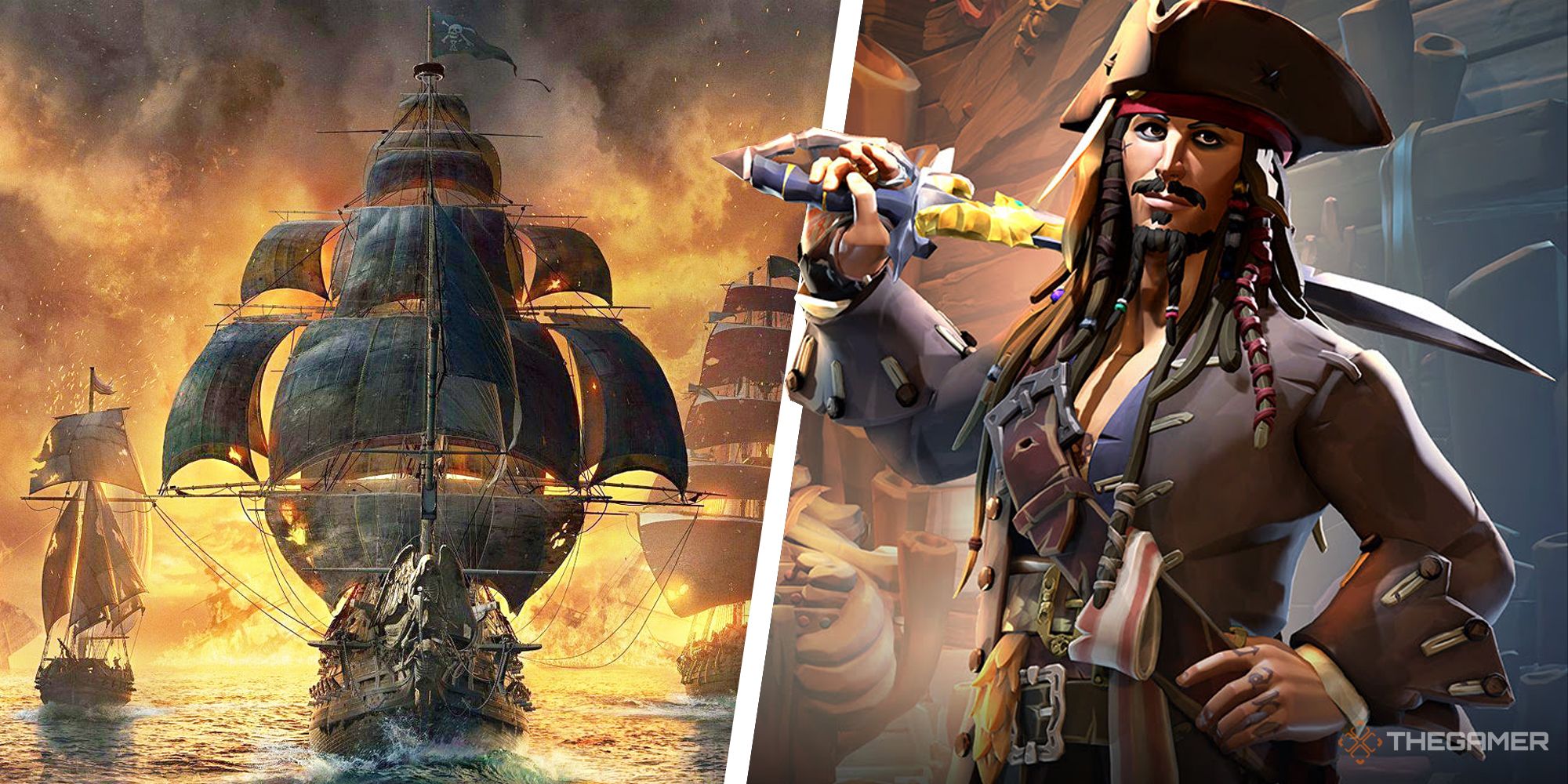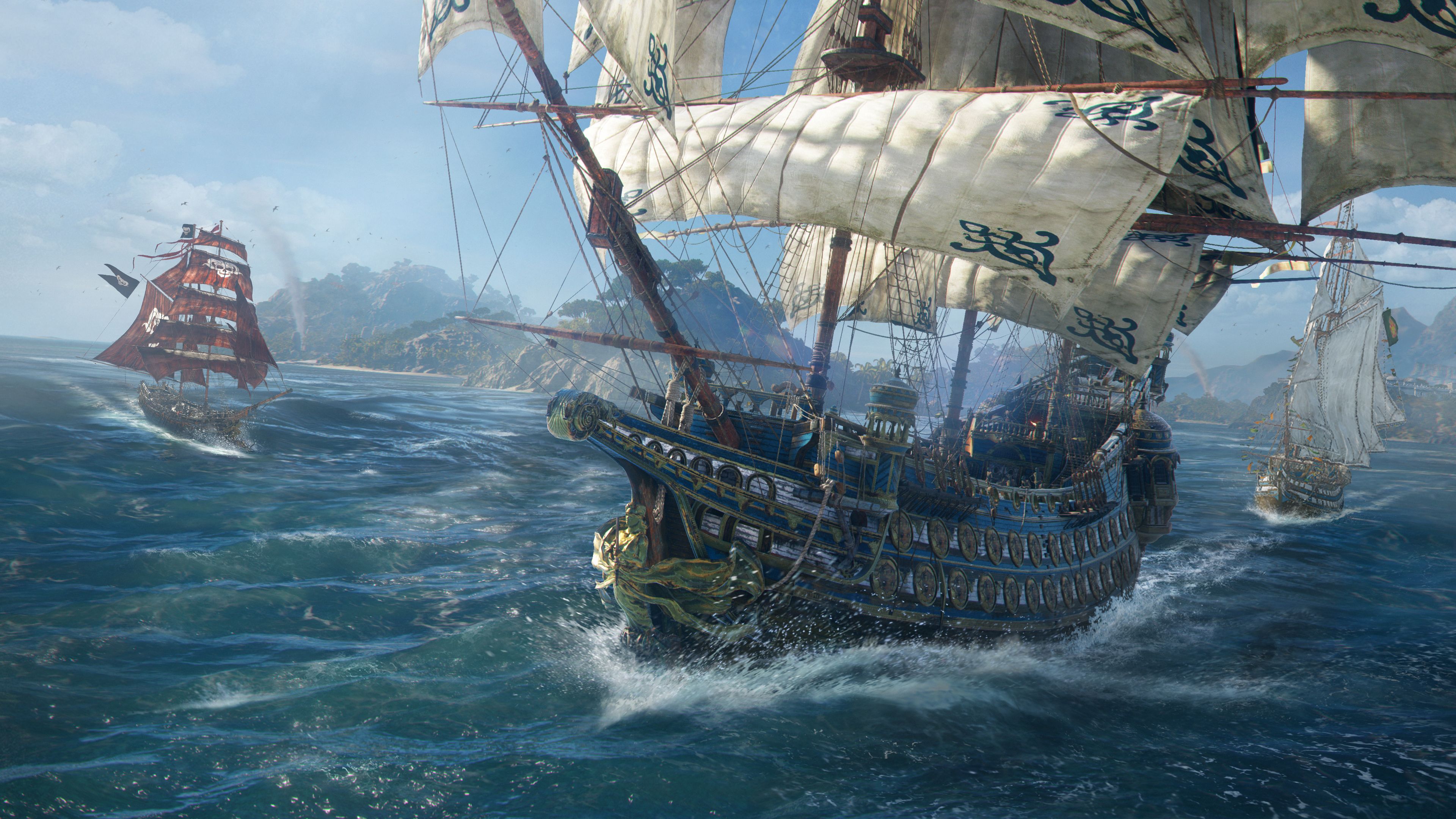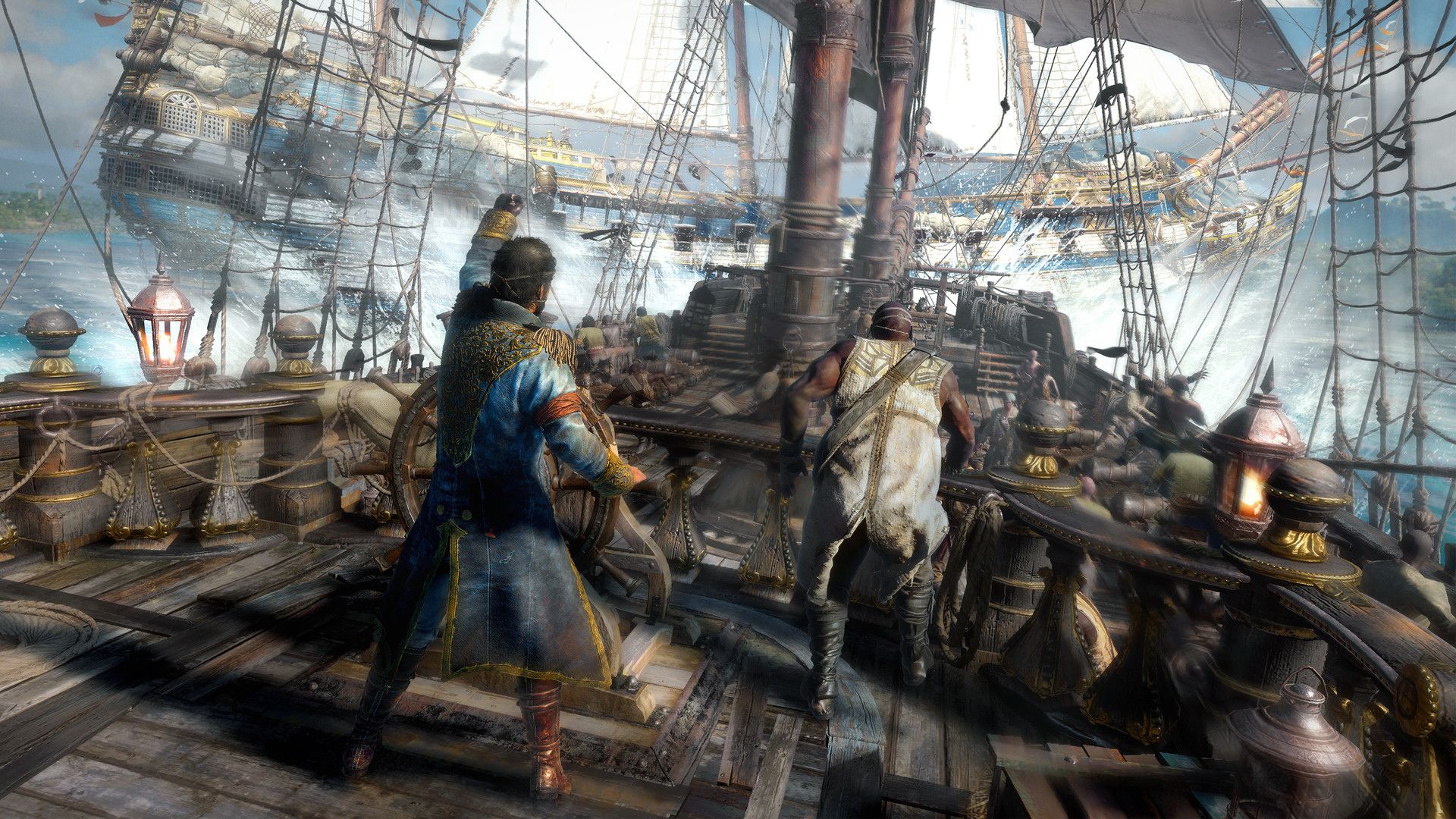Ubisoft’s Skull & Bones has been in development hell for several years now. The publisher has all but banned it from appearing at major shows, and only ever hesitantly gives it a mention in quarterly earnings calls because it’s under a contractual obligation with the Singapore government to finish the damn thing. A recent report from Kotaku states that $120 million has now been sunk into the project, with it undergoing so many reboots and changing ideas that Ubisoft Singapore has struggled to maintain any forward momentum. At one point, the question was even raised as to whether you play as the pirate or the boat. It’s going to come out eventually, but should it?
Now eight years have passed, Ubisoft has confirmed Skull & Bones has entered a playable alpha state, although this feels like a sudden response to save face in reaction to Kotaku’s reporting as opposed to a genuine moment of pride for the game. According to the same report, Ubisoft is required to finish the game at its Singapore studio while also developing several additional new IPs out of the country in exchange for generous subsidies. If this is true, the game couldn’t be cancelled even if Ubisoft wanted to, so the only option is to trudge forward and hope for the best. These days, Skull & Bones feels increasingly alien in a landscape that has long moved on and left it behind.
Skull & Bones first reared its head in 2017 with an impressive E3 demo, and followed up with yet another in 2018, after the game was delayed from its initial May 2018 release date. However, these were virtual slices never meant to represent the full experience, with many claiming Skull & Bones simply didn’t exist yet, at least not in anything like a playable state. It was a smokescreen, but tactics like this are nothing new in the video game industry. Cyberpunk 2077 is the most damning example, with CD Projekt Red being more enamoured with impressing press and influencers through extravagant curated showcases than actually ensuring the game was in a playable state before launch. I can see the logic here, but a balance needs to be struck, although it seems Skull & Bones was in such a state of contentious flux that it never even got that far.
It was also revealed before Sea of Thieves grew into the juggernaut it is today. Rare’s swashbuckling multiplayer outing launched to an underwhelming reception, but it has since evolved into a global darling thanks to frequent updates and a global community who trusts Rare to deliver timely updates and listen to player feedback. The same studio recently rebooted development on Everwild, so it clearly isn’t willing to push forward with a vision that doesn’t feel right. If Sea of Thieves had sunk to the bottom of the ocean, Skull & Bones might have stood a chance, but now it feels like another live service game based around assembling a crew and sailing the Seven Seas in a market that is already saturated.
Inspired by the naval combat in Assassin’s Creed 4: Black Flag, Skull & Bones began life as a rather predictable spin-off, aiming to place a greater focus on the role of pirates in this world and how different factions would battle in pursuit of territory, loot, and a growing reputation. Sea of Thieves is primarily about exploration and whimsy, while Ubisoft’s take on things appears to be a more aggressive interpretation. At least, the last time we saw it that was the idea, but things could have changed substantially in the years since. Ubisoft has doubled down on the world of live-service ecosystems with the likes of Rainbow Six Siege, For Honor, Hyper Scape, and the upcoming Assassin’s Creed Infinity and Tom Clancy’s XDefiant. All of these games demand all of your spare time, so adding another one to the mix feels like a suffocation of creativity where smaller, more temporary products could shine.
There’s nothing wrong with live service games, I’m heavily invested in a few of them, but Ubisoft seems to be placing so many of its eggs in the same basket that is already filled to the brim. Kotaku’s report states that this direction has held Skull & Bones back throughout its development. The initial plan was to reuse and expand upon Black Flag’s assets to produce a sea-faring adventure in a relatively short amount of time, but ambition for the project ballooned and feature creep saw it rebooted again and again until it arrived at the unknown vision we hear whispers of today.
I feel awful for the team working on this game right now, having their creative talents thrown into a project that keeps spinning on its heels in a state of perpetual development. I can see the potential for something like Skull & Bones, or at least I did back in 2017, but after years of silence and watching the video game industry shift and change beneath its feet, it feels like an idea increasingly out of place in today’s market. I’m willing to be proven wrong, but it seems like yet another victim to Ubisoft’s increasingly linear way of doing business. Sea of Thieves has thousands of players enraptured already, so Skull & Bones would need to offer something truly groundbreaking to force this dedicated audience to jump ship. They might dabble, but long-term investment is an entirely different ballgame, and one I’m unsure this game will be capable of.
I wrote about Splinter Cell recently and how a traditional reboot seems unlikely because it wouldn’t possess the long tail required to satisfy Ubisoft’s economic needs. Skull & Bones feels like the inverse of this problem, a live service game that seems determined to succeed, or simply needs to be released to put a stop to internal politics that have rocked the publisher for almost a decade now. Now the game has entered a playable alpha state, there’s a big chance of it making a more substantial appearance in the coming months, and I hope it does, mostly so it can prove me wrong and show that all these years of work haven’t been for nothing.
Next: "We Gave It Everything We Had" - Greg Kasavin On Bastion's 10th Anniversary



